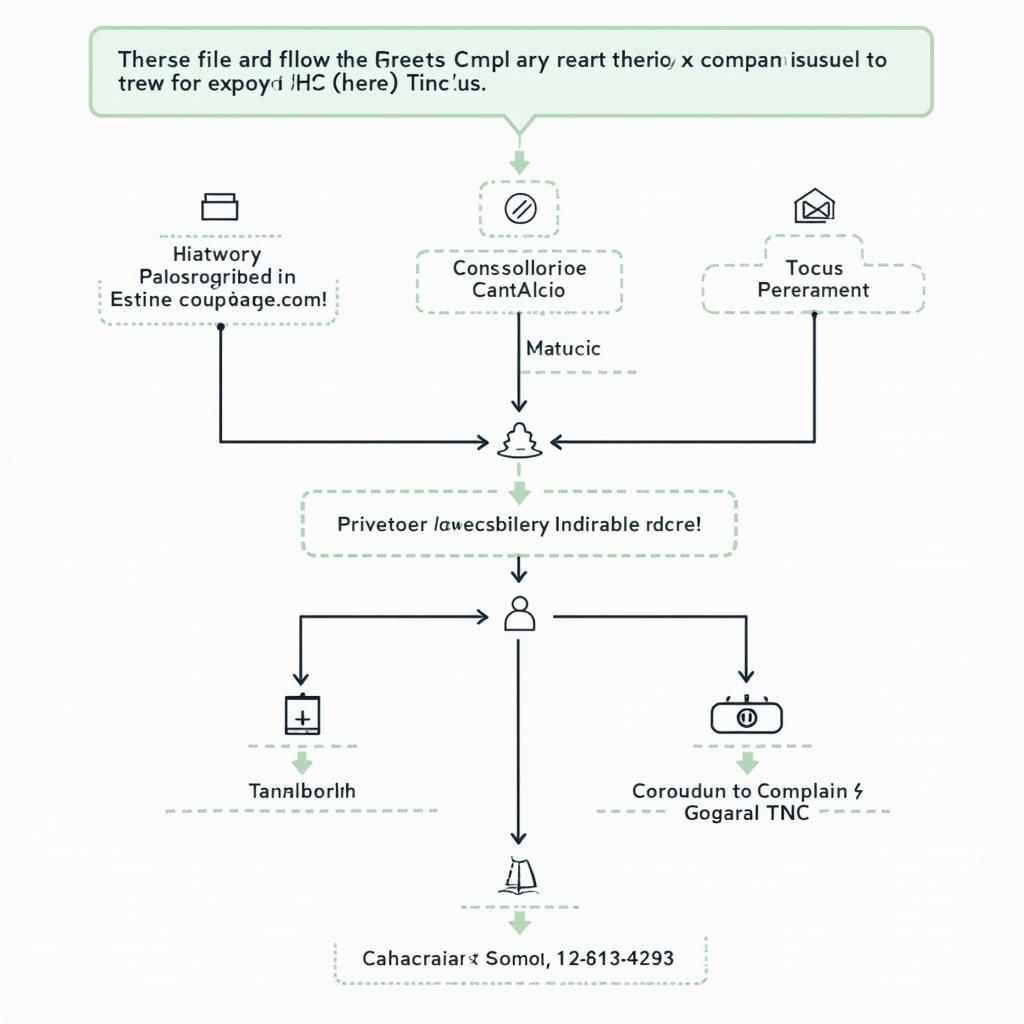Navigating the Black Car Service California Regulation landscape can be complex. This guide provides a comprehensive overview of the rules and regulations governing black car services in California, helping both businesses and consumers understand their rights and responsibilities.
Understanding the Basics of Black Car Service Regulations in California
California’s regulations for black car services, also known as Transportation Network Companies (TNCs), differ from traditional taxi services. These regulations are primarily overseen by the California Public Utilities Commission (CPUC). The CPUC establishes rules regarding licensing, insurance, vehicle safety, driver background checks, and consumer protection. These regulations are designed to ensure passenger safety, fair competition, and transparent operations.
Key Regulations for TNCs in California
Several key regulations impact black car services in California:
- Licensing: TNCs must obtain a permit from the CPUC to operate legally. This permit requires demonstrating financial responsibility, insurance coverage, and compliance with other regulatory requirements.
- Insurance: TNCs are required to maintain specific levels of insurance coverage for drivers and passengers. This includes coverage during periods when the driver is logged into the app and waiting for a ride request, when en route to pick up a passenger, and during the trip itself.
- Vehicle Safety: Vehicles used for black car services must meet certain safety standards, including regular inspections and maintenance.
- Driver Background Checks: TNCs must conduct thorough background checks on their drivers, including criminal history checks and driving record reviews.
- Consumer Protection: Regulations protect consumers by establishing rules for fare transparency, prohibiting discrimination, and providing avenues for complaints and dispute resolution.
Decoding the Specifics of California’s TNC Regulations
Understanding the nuances of these regulations is crucial for both businesses and consumers. For example, the insurance requirements are particularly important, ensuring that passengers are protected in the event of an accident. Additionally, the background check process helps to ensure passenger safety by screening out drivers with a history of criminal activity or unsafe driving practices.
What are the Insurance Requirements for TNCs?
California law mandates specific insurance coverage levels for TNC drivers, providing crucial protection for both drivers and passengers throughout the various phases of a ride.
- Period 0 (App Off): When the TNC driver’s app is off and they are not engaged in ride-hailing activities, their personal auto insurance policy covers them.
- Period 1 (App On, No Passenger): While waiting for a ride request, the TNC’s insurance provides contingent liability coverage. This means that the driver’s personal insurance is primary, and the TNC’s insurance kicks in if the driver’s personal policy doesn’t cover the full amount.
- Period 2 (En Route to Passenger): The TNC’s insurance provides primary liability coverage from the moment the driver accepts a ride request until they arrive at the passenger’s location.
- Period 3 (Passenger in Vehicle): Full commercial insurance coverage provided by the TNC protects both driver and passengers during the trip.
Navigating the Regulatory Landscape: Tips for Businesses and Consumers
For businesses operating in the black car service sector, staying compliant with these regulations is paramount. Failure to adhere to the rules can result in penalties, fines, and even suspension of operating permits. For consumers, understanding these regulations can help them make informed decisions when choosing a black car service and ensure they are protected in case of an accident or dispute.
How can TNCs ensure compliance?
TNCs can ensure compliance by implementing robust internal policies and procedures, conducting regular audits, and providing ongoing training to drivers. It’s also essential to stay updated on any changes or updates to the regulations.
Addressing Common Questions about Black Car Service Regulations
What are the licensing requirements for black car services in California? TNCs must obtain a permit from the CPUC, which involves submitting an application, demonstrating financial responsibility, and meeting other criteria.
How can consumers file a complaint against a black car service? Consumers can file complaints with the CPUC’s Consumer Protection and Enforcement Division.
 Filing a Complaint Against a California TNC
Filing a Complaint Against a California TNC
Conclusion
Understanding black car service California regulation is crucial for both businesses and consumers. By adhering to these regulations, businesses can operate legally and build trust with their customers, while consumers can enjoy safe and reliable transportation services. By staying informed and following the guidelines outlined by the CPUC, everyone can contribute to a well-regulated and thriving black car service industry in California.
FAQ
- What is a TNC?
- Who regulates TNCs in California?
- What are the insurance requirements for TNC drivers?
- How are TNC fares regulated?
- What are the consequences of non-compliance with TNC regulations?
- How can I report a safety concern with a TNC?
- Where can I find more information about TNC regulations in California?
Other Questions You Might Have
- What are the differences between TNCs and traditional taxi services?
- How does California regulate the accessibility of black car services for people with disabilities?
- What is the role of local governments in regulating TNCs?
Related Articles on CarServiceRemote:
- The Future of Ride-Sharing in California
- Understanding TNC Safety Regulations
- Comparing TNCs in California
Need assistance? Contact us via WhatsApp: +1(641)206-8880, or email us at [email protected]. Our customer service team is available 24/7.
